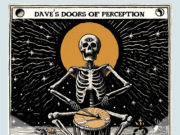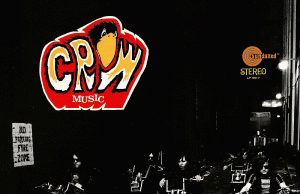The music industry has always been a hotbed of innovation, with new technologies continually shaping how we create, distribute, and experience music. Today, we’re witnessing an exciting era where cutting-edge music plugins are transforming the sound and production processes. These advancements are not just technical feats; they’re reshaping the artistic landscape, offering unprecedented possibilities for musicians and producers alike. From AI-driven composition tools to cloud-based collaborative platforms, the impact of these plugins is profound and far-reaching. Let’s explore how these innovations are setting new standards in music production and what they mean for the future of sound.
Revolutionizing Music Production: The Rise of AI-Based Plugins
AI-Enhanced Mixing and Mastering
The advent of AI-based plugins is significantly changing the game in music production, particularly in the areas of mixing and mastering. These plugins, using advanced algorithms, can analyze audio files and make intelligent adjustments to enhance overall sound quality. For instance, they can automatically balance levels across different tracks in a music library, ensuring a cohesive and polished final product. This technology is a boon for both seasoned producers and beginners, as it streamlines the technical aspects of production, allowing more focus on creativity.
Transforming Composition with AI Algorithms
AI is not just about refining sound quality; it’s also stepping into the creative side of music production. These plugins can analyze existing music files from platforms like YouTube Music or Apple Music, learn from their structures, and assist in creating new compositions. They can suggest chord progressions, melodies, and even create entire sections of music, offering a new layer of inspiration for artists. This technology is opening up new horizons for music creation, making it accessible for those who may not have formal training but possess a passion for music.
Streamlining Music Libraries with Intelligent Organization
Another significant impact of AI in music production is in the organization and management of your music collection. An AI-powered music storage app can intelligently categorize and organize a vast array of music files, sorting them by genre, mood, tempo, and other parameters. This not only makes it easier for users to navigate their music libraries but also assists in the creative process by quickly providing suitable tracks for sampling or inspiration. The integration of AI in these applications is transforming the tedious task of storing music and managing large music collections into a swift, automated process.
Blending the Traditional and Innovative: Hybrid Plugins Transforming Soundscapes
Bridging Analog Warmth and Digital Precision
The hybrid approach in music plugins is creating a unique fusion, blending the warmth of analog gear with the precision of digital algorithms. This combination is particularly evident in plugins that emulate vintage compressors and EQs, like the FabFilter Pro MB, offering the characterful sound of old-school hardware while maintaining the flexibility and recall-ability of digital software. For musicians and engineers who have long cherished the sonic qualities of analog equipment, these plugins present an opportunity to incorporate those beloved textures into their music files, without sacrificing the convenience of modern technology.
Customizable Sound Design with Modular Plugins
Modular plugins are redefining sound design by allowing users to build their own custom signal chains. This approach empowers producers to craft unique sonic signatures by piecing together various modules – from oscillators and filters to effects and modulators. The beauty of these plugins lies in their enormous versatility; they can be as simple or as complex as the user desires. For those who enjoy exploring and creating distinctive sounds, modular plugins provide an endless playground of audio possibilities.
Real-Time Collaboration in the Cloud
The integration of cloud-based features in music plugins is revolutionizing the way musicians collaborate. By allowing multiple artists to work on the same project in real-time, regardless of their geographic location, these plugins are breaking down geographical barriers and fostering a more collaborative music creation process. This feature is particularly beneficial for artists and producers who work with international teams or who prefer a more dynamic and interactive approach to music production. The convenience of real-time cloud collaboration is a significant step forward in how music is created and shared.
Future Trends and Predictions: What’s Next for Music Technology?
AI-Driven Music Creation and Personalization
The future of music technology is heavily leaning towards AI-driven tools that can assist in the music creation process. These advanced systems are capable of analyzing music files and suggesting edits, creating accompaniments, or even composing new pieces based on learned patterns. Of course, we can’t really condone using AI to compose. This should be left to the artist. This level of AI integration is not just about automating tasks but about enhancing the creative process, providing artists with new inspirations and possibilities. It’s an exciting prospect for the future of music production, offering a blend of human creativity and machine intelligence.
Immersive Audio Experiences with 3D Sound
3D audio technology is set to redefine the listening experience by creating a more immersive sound environment. This technology allows sound to be placed within a three-dimensional space, creating the illusion of depth and movement around the listener. As this technology eagerly becomes more accessible, we can expect a surge in music productions that leverage 3D audio to create more engaging and lifelike listening experiences. This advancement will not only benefit music producers but also offer listeners a whole new way to experience music.
The Rise of Personalized Music Platforms
Personalized music platforms are expected to take a leap forward, offering listeners a more tailored listening experience. These platforms will likely use sophisticated algorithms to analyze listeners’ preferences and listening habits, curating playlists and suggesting new music files that align with their tastes. This level of personalization extends beyond mere recommendation algorithms, potentially influencing how music is produced and marketed to cater to individual listener preferences. It’s a trend that underscores the growing importance of data and analytics in the music industry.
Final Thoughts
As we’ve seen, the future of music technology is bright and bustling with innovation. Cutting-edge plugins are not only enhancing the quality and efficiency of music production but are also opening up new avenues for creativity and collaboration. The seamless blend of traditional techniques with modern digital capabilities, alongside the growing influence of AI and cloud-based technologies, paints an exciting picture for both music creators and enthusiasts. These developments are more than just tools; they’re catalysts for change in an industry that continually seeks to redefine itself.










































